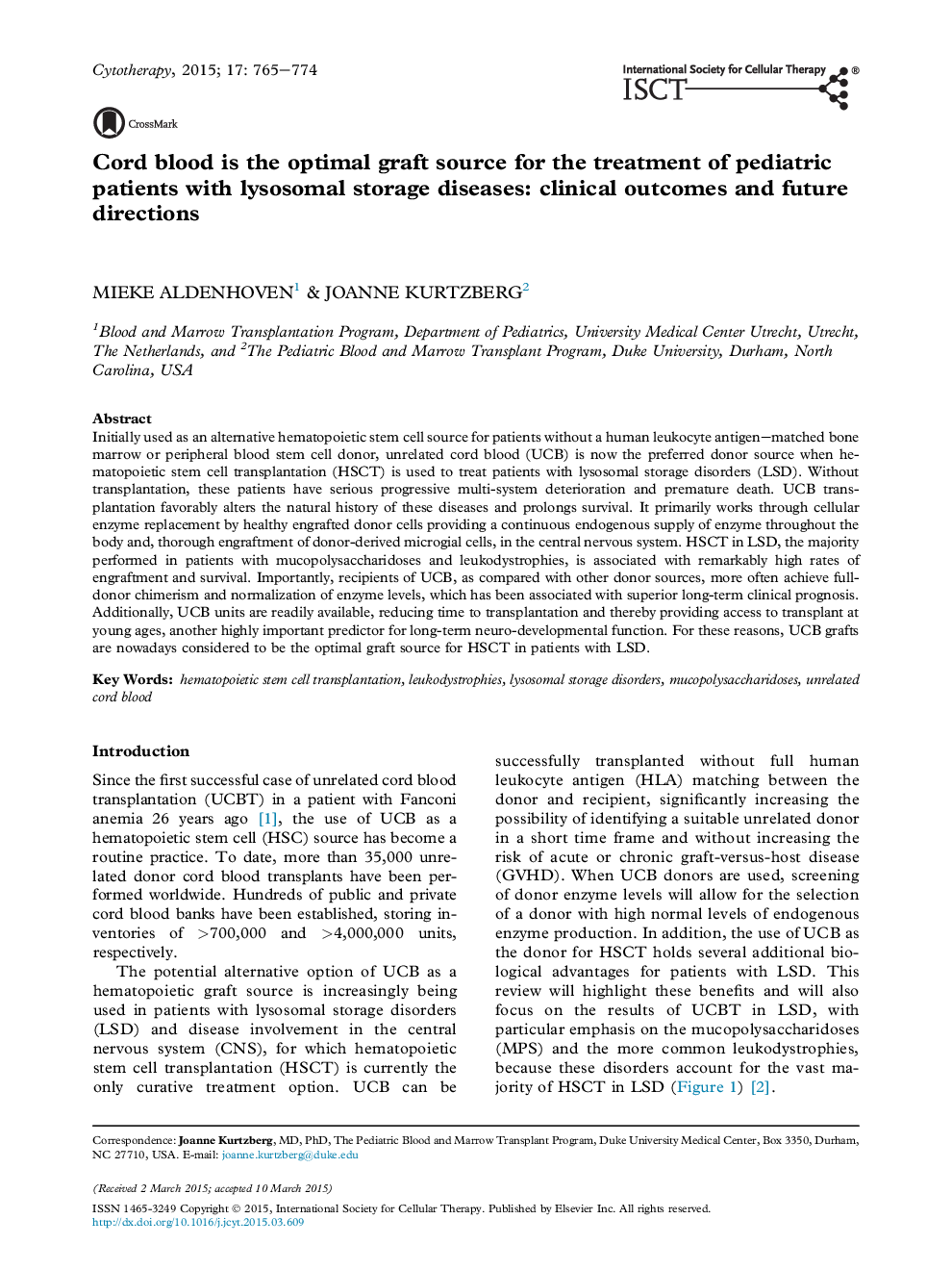| Article ID | Journal | Published Year | Pages | File Type |
|---|---|---|---|---|
| 2171250 | Cytotherapy | 2015 | 10 Pages |
•UCB is increasingly used as a graft source for HSCT in patients with lysosomal storage disorders.•UCBT in LSD patients is associated with high survival and engraftment rates.•Recipients of UCB more often achieve full-donor chimerism and normal enzyme levels.•UCB is readily available, providing rapid access to transplantation and reducing the age at HSCT, important for long-term prognosis.
Initially used as an alternative hematopoietic stem cell source for patients without a human leukocyte antigen–matched bone marrow or peripheral blood stem cell donor, unrelated cord blood (UCB) is now the preferred donor source when hematopoietic stem cell transplantation (HSCT) is used to treat patients with lysosomal storage disorders (LSD). Without transplantation, these patients have serious progressive multi-system deterioration and premature death. UCB transplantation favorably alters the natural history of these diseases and prolongs survival. It primarily works through cellular enzyme replacement by healthy engrafted donor cells providing a continuous endogenous supply of enzyme throughout the body and, thorough engraftment of donor-derived microgial cells, in the central nervous system. HSCT in LSD, the majority performed in patients with mucopolysaccharidoses and leukodystrophies, is associated with remarkably high rates of engraftment and survival. Importantly, recipients of UCB, as compared with other donor sources, more often achieve full-donor chimerism and normalization of enzyme levels, which has been associated with superior long-term clinical prognosis. Additionally, UCB units are readily available, reducing time to transplantation and thereby providing access to transplant at young ages, another highly important predictor for long-term neuro-developmental function. For these reasons, UCB grafts are nowadays considered to be the optimal graft source for HSCT in patients with LSD.
